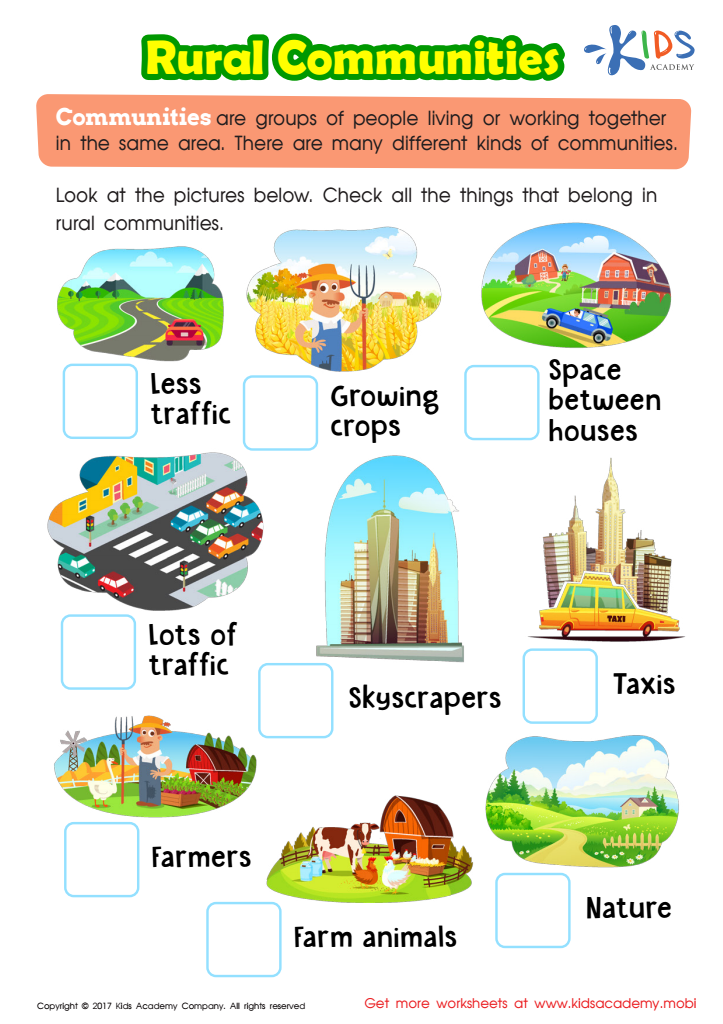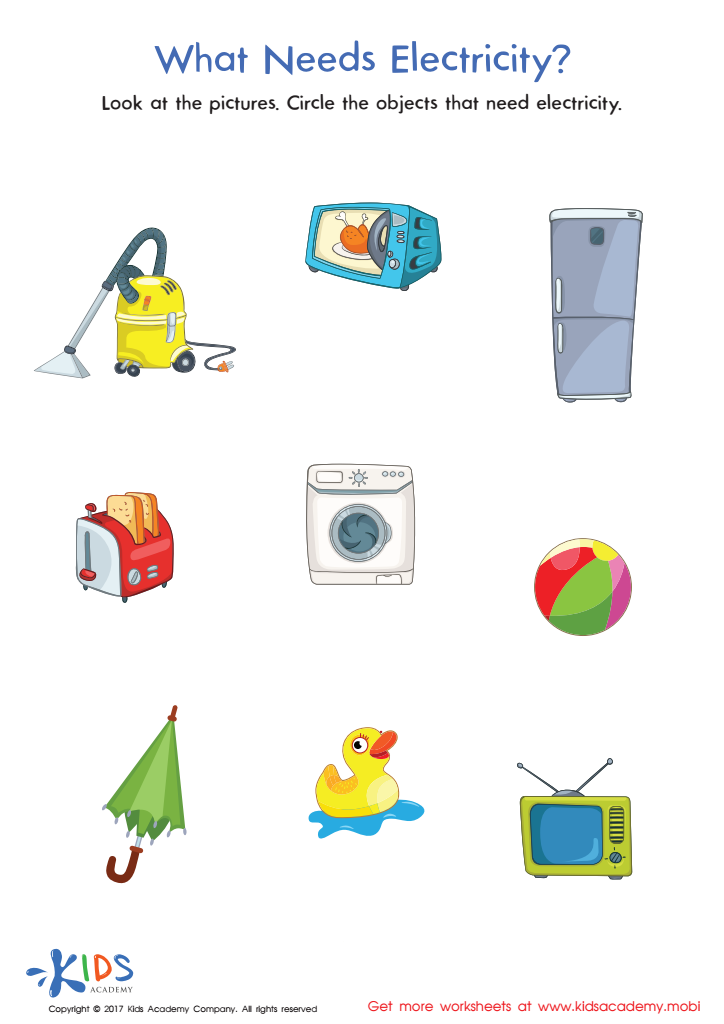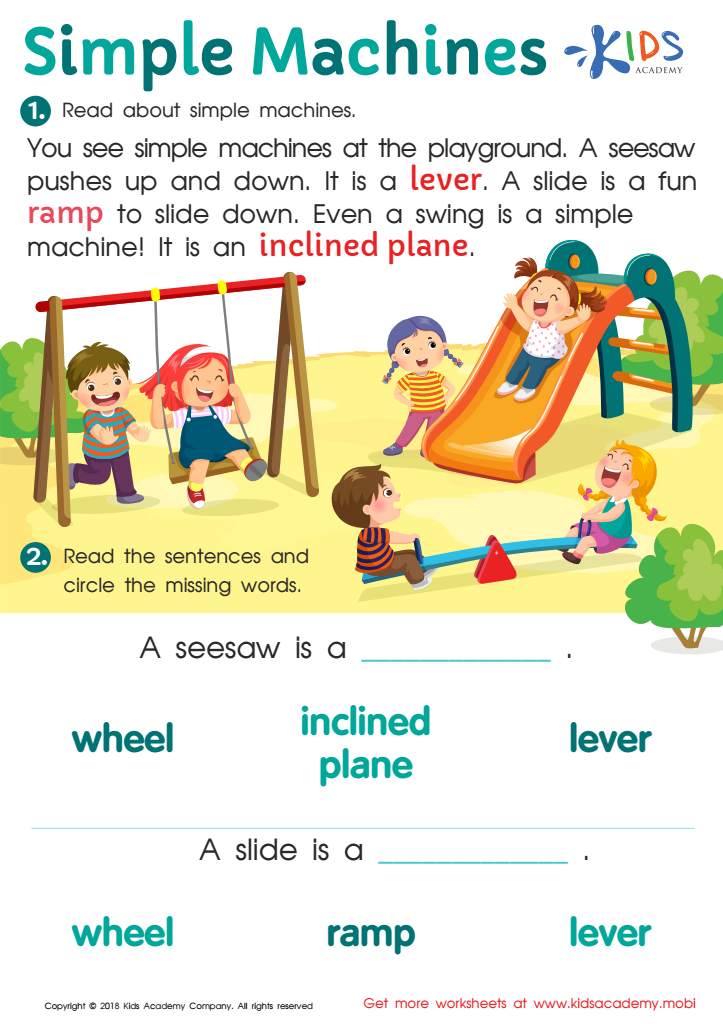Developing analytical skills Community Worksheets for Ages 4-8
3 filtered results
-
From - To
Empower your child's analytical skills with our Community Worksheets, designed for ages 4-8. These engaging and educational worksheets help young learners understand their social environment while nurturing critical thinking and problem-solving abilities. Featuring fun activities that explore various community roles and services, our printable resources make learning interactive and enjoyable. Perfect for home or classroom use, these worksheets lay a solid foundation for future academic success. Each worksheet is meticulously crafted to align with age-appropriate standards, ensuring your child builds vital skills in a structured, supportive way. Help your child connect with their community and expand their analytical capabilities today!


Rural Communities Printable


What Needs Electricity Printable


Simple Machines Worksheet
Developing analytical skills in young children, ages 4-8, is essential for fostering critical thinking, problem-solving abilities, and a lifelong love of learning. Parents and teachers who focus on this area provide children with key tools for navigating the world more effectively and making informed decisions.
At this formative age, children's brains are highly receptive, and introducing exercises that promote analysis—such as sorting games, simple puzzles, and observational activities—can lay a strong cognitive foundation. Analytical skills also enhance their ability to understand and process information, discern patterns, and draw conclusions. This leads to better performance in school subjects like math, science, and reading comprehension.
Additionally, nurturing analytical skills within a community setting encourages collaborative learning. Children exchange ideas, question assumptions, and build off each other's thinking, further strengthening their intellectual and social capacities. These early experiences set the stage for advanced learning and help children become more independent and resourceful.
Importantly, children who develop analytical skills early are better equipped to tackle complex challenges later in life. By instilling these abilities at a young age, parents and teachers support children's academic success and personal growth, preparing them to be thoughtful, capable members of society. Investing in a community-oriented approach to develop analytical skills can create a supportive environment where young minds thrive.

 Assign to the classroom
Assign to the classroom












